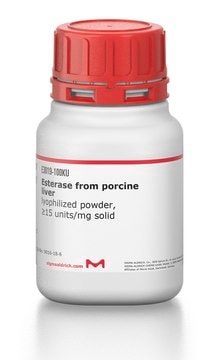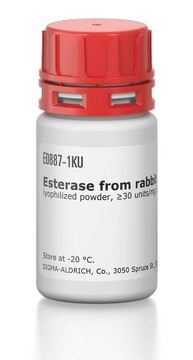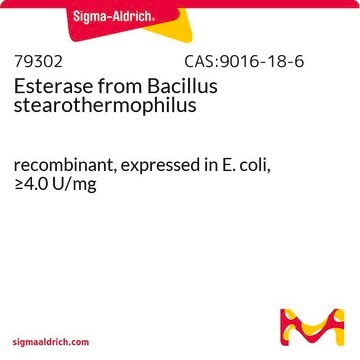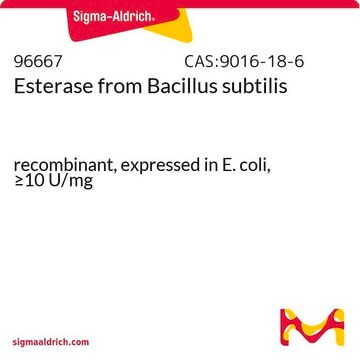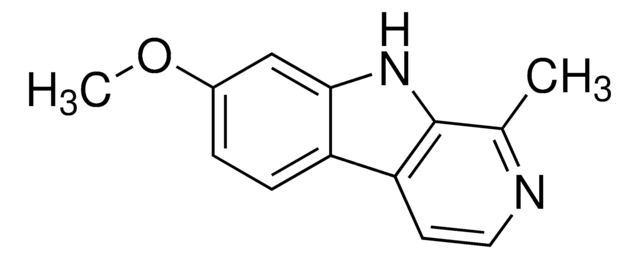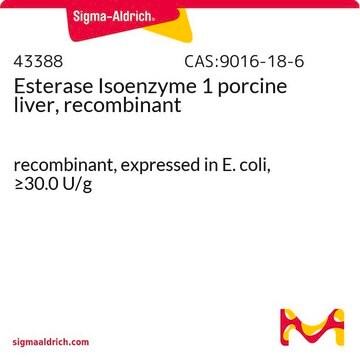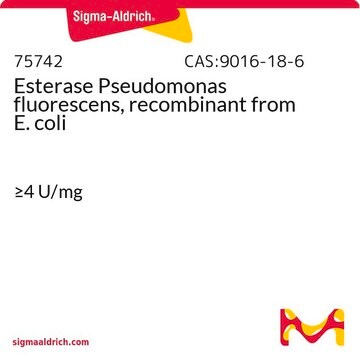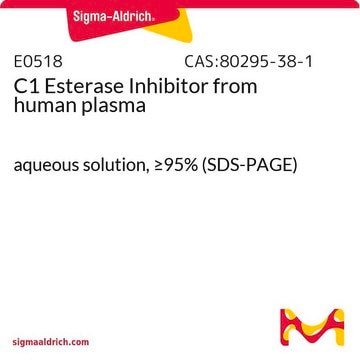E2884
Esterase from porcine liver
ammonium sulfate suspension, ≥150 units/mg protein (biuret)
Synonym(s):
Carboxyl esterase, Carboxylic-ester hydrolase, PLE
About This Item
Recommended Products
biological source
Porcine liver
form
ammonium sulfate suspension
specific activity
≥150 units/mg protein (biuret)
mol wt
168 kDa
storage temp.
2-8°C
Looking for similar products? Visit Product Comparison Guide
General description
Application
Pig liver esterase is commonly used for kinetic resolutions and assymetric synthesis in organic chemistry.
Biochem/physiol Actions
Unit Definition
Physical form
Storage Class Code
12 - Non Combustible Liquids
WGK
WGK 1
Flash Point(F)
Not applicable
Flash Point(C)
Not applicable
Personal Protective Equipment
Certificates of Analysis (COA)
Search for Certificates of Analysis (COA) by entering the products Lot/Batch Number. Lot and Batch Numbers can be found on a product’s label following the words ‘Lot’ or ‘Batch’.
Already Own This Product?
Find documentation for the products that you have recently purchased in the Document Library.
Customers Also Viewed
Articles
Instructions for working with enzymes supplied as ammonium sulfate suspensions
Protocols
Objective: To standardize a procedure for the enzymatic determination of Esterase activity using Ethyl Butyrate as a substrate.
Our team of scientists has experience in all areas of research including Life Science, Material Science, Chemical Synthesis, Chromatography, Analytical and many others.
Contact Technical Service